In the quest for a healthier living environment, air purifiers have emerged as the unsung heroes in our homes and offices. These devices, often unobtrusive and overlooked, serve as vigilant protectors, continuously cycling the air we breathe to remove a variety of pollutants, allergens, and other airborne irritants. From dust mites and pet dander to smoke particles and volatile organic compounds, air purifiers tackle an invisible yet significant threat to our indoor air quality. Yet, the heart of these machines—the filter—is where the true battle is waged. It is here that unseen particles are captured and contained, preventing them from re-entering the atmosphere of our living spaces. This article aims to shed light on the pivotal role of air purifier filters and underscores the critical importance of their regular replacement. Neglecting this key component can undermine the very purpose of having an air purifier, turning these bastions of cleanliness into mere ornaments. Thus, understanding and adhering to recommended filter replacement schedules is not just advisable; it is imperative for maintaining the sanctity of our indoor environments.
How Important Are Air Purifiers in Maintaining Indoor Air Quality?
@jennifer_bev Why did it take us so long to put air purifiers in our home!?! Best decision! #cleanair #airpurifier #renpho #renphoairpurifier #pets #dander #clean #jennifer_bev @RENPHO #tiktokshop #sale ♬ original sound - Jennifer_bev
Air purifiers have become a popular household item in recent years, and for good reason. As more people are becoming aware of the importance of maintaining healthy indoor air quality, the demand for air purifiers has risen significantly. These devices play a crucial role in filtering out harmful particles and contaminants from the air, making it cleaner and safer to breathe.
One of the key aspects of air purifiers is their ability to remove pollutants such as dust, pollen, pet dander, mold spores, and even cigarette smoke from the air. These microscopic particles can have detrimental effects on our respiratory system, especially for those who suffer from allergies or asthma. By utilizing filters, air purifiers effectively trap these particles, preventing them from circulating in our living spaces and causing potential health issues.
To ensure that air purifiers continue to effectively clean the air, it is important to regularly change their filters. The filter acts as the purifier's defense mechanism, capturing and removing harmful pollutants. Over time, these filters can become clogged with the accumulated contaminants, reducing their efficiency. As a general guideline, it is recommended to change the air purifier filter every three to six months. However, the frequency may vary depending on various factors, including the manufacturer's instructions and the level of pollutants in the surrounding environment.
The importance of changing the filter in a timely manner cannot be overstated. A clogged filter not only compromises the effectiveness of the air purifier but can also lead to a decline in indoor air quality. Inadequate filtration may result in the re-circulation of pollutants, negating the benefits of having an air purifier in the first place. By regularly swapping out the filters as recommended, you can ensure that your air purifier continues to function optimally and maintain clean and healthy air in your home.
The Purpose of Air Purifier Filters in Trapping Airborne Particles
@mamanxo this is a must have in any home but especiallyyyy so on the farm™️
♬ Show Me How - Men I Trust
Air purifier filters play a crucial role in maintaining a clean and healthy indoor environment by trapping airborne particles. These filters are designed to capture dust, pollen, pet dander, mold spores, and other contaminants that float in the air we breathe. By doing so, they improve the air quality and help alleviate allergy symptoms for many individuals.
To understand the purpose of air purifier filters, it is essential to know how they work. These filters consist of various materials, such as activated carbon, fiberglass, or High-Efficiency Particulate Air (HEPA) filters. Each material has specific characteristics and targets different types of airborne particles.
When the air purifier is turned on, it draws in the surrounding air, which passes through the filter. Depending on the filter type, the impurities present in the air are either trapped within the fibers or absorbed by the activated carbon. As a result, the purified air is released back into the room, providing a fresh and healthier breathing environment.
Now, let's address the questions related to air purifier filters. Many people wonder how often they need to change these filters. One of the most important benefits of regularly changing air purifier filters is the improvement in indoor air quality. Over time, air filters become clogged with dust, pet dander, pollen, and other airborne contaminants. When these filters are not replaced, they become less effective at capturing these particles, causing them to recirculate in the air. As a result, the air that is supposed to be purified ends up being filled with allergens and pollutants, which can lead to various respiratory issues and allergies.
Furthermore, regularly replacing air purifier filters helps to maintain the efficiency of the device. When filters are clogged, the air purifier has to work harder to push air through the system. This can put additional strain on the motor and reduce the performance of the device, leading to increased energy consumption and higher electricity bills. By changing the filters as recommended by the manufacturer, you can ensure that your air purifier is running efficiently and effectively, providing you with cleaner air without wasting energy.
Now, how often should you change an air purifier filter? The answer to this question depends on several factors. The type of air purifier, the quality of the air in your surroundings, and the frequency of usage all play a role in determining filter replacement frequency. As a general rule of thumb, it is recommended to change the filter every 6 to 12 months, or as advised by the manufacturer. However, if you live in an area with high levels of pollution, have pets, or suffer from allergies, you may need to replace the filter more frequently to maintain optimal performance.
Signs That Your Air Purifier Filter Needs Replacement
@painfreebeauty @RENPHO Review of the Renpho True Hela Filter Air Purifier. #renpho #renphoairpurifier #truehepaairpurifier #truehepafilter #activatecharcoalfilter #airpurifier #cleanair #allergies #petdander #dustallergy #tiktokshopsale #tiktokshopmusthaves #airfilter #tiktokshopfinds #tiktokspringsale ♬ Fashionable lo-fi chill out pop(1153028) - RYU ITO
An air purifier is a valuable home appliance that cleanses the air by eliminating harmful pollutants, allergens, and other airborne particles. However, to ensure optimal performance, it is crucial to know when to change the filter.
Firstly, let's address the process of changing the air purifier filter. The steps may slightly vary depending on the model, but generally, it involves the following:
- Turn off the air purifier and unplug it from the power source.
- Open the purifier's front panel or access door, which typically grants access to the filter compartment.
- Carefully remove the old filter, ensuring not to damage it or scatter any trapped particles.
- Dispose of the old filter as per your local waste management guidelines.
- Take the new filter and insert it into the designated slot, following the manufacturer's instructions.
- Close the front panel or access door securely.
- Plug in the air purifier and turn it on to resume clean air circulation.
Now that you know the process of changing the filter, let's discuss how long an air purifier filter should last. Generally, the lifespan of a filter depends on multiple factors, including the manufacturer, the quality of the filter, and the air quality in your surroundings. On average, most filters last between 6 to 12 months. However, it is essential to note that some filters, such as high-efficiency particulate air (HEPA) filters, can last up to 2 years.
While the filter's durability is affected by external factors, there are certain signs that indicate it's time for a replacement. These signs include:
- Decreased airflow: If you notice reduced air circulation or weak airflow from your air purifier, it may indicate a clogged filter that needs changing.
- Visible dirt and debris: A visual inspection of your filter can reveal accumulated dirt, dust, or debris. If you see a substantial buildup, it's time for a replacement.
- Unpleasant odors: If your air purifier starts emitting unpleasant odors or if you perceive a change in the air quality, it could be due to an exhausted filter.
- Allergies or respiratory issues: If you or your family members begin experiencing increased allergies or respiratory problems, it could be a sign that the filter is no longer effectively purifying the air.
Lastly, it's crucial to address how often you should change an air purifier filter. As mentioned earlier, most filters last between 6 to 12 months. However, this duration may vary depending on factors such as usage, air quality, and the specific needs of your household. If you live in a highly polluted area or have pets that shed a lot, you may need to replace the filter more frequently.
Invest in Your Own Air Purifier
@anniefernn The perfect size for my room! Can do up to 960 ft and with pets its a must have 🥹 I hate the smell of food after I cook and with this it’s GONE! #renpho #airpurifier #cleanhome #aestheticappliances #easytouse #affordablehomefinds #cleantok #capcut ♬ som original - Vênus
The RENPHO Smart Air Purifier 089 stands as a shining example of the strides made in air purification technology. It’s not just an appliance; it’s a sophisticated piece of engineering designed to harmonize with the modern lifestyle. With its sleek design and intuitive controls, it integrates effortlessly into any room, enhancing both the air you breathe and the space it occupies. The purifier’s high-efficiency particulate air (HEPA) filter is a marvel of scientific innovation, capable of capturing an impressive 99.97% of airborne particles as small as 0.3 microns. This includes a wide spectrum of pollutants such as dust, smoke, pollen, and even microscopic pathogens, ensuring that the air in your environment remains clean and healthful.
When it comes to maintenance, the RENPHO Smart Air Purifier 089 has been designed with user-friendliness in mind. The process of changing the filter is simple and efficient, ensuring that you can continue to enjoy purified air with minimal interruption. To begin, it’s important to turn off and unplug the device to ensure safety. Carefully invert the purifier onto a soft surface to avoid any damage. Locate the base cover, which is designed to be user-friendly, requiring a simple twist from the ‘LOCK’ to ‘OPEN’ position. With the cover open, the old filter can be easily removed and replaced with a new one, ensuring that your purifier is always operating at peak performance. After placing the new filter, secure the base cover by twisting it back to the ‘LOCK’ position until it clicks into place, signifying a secure fit. Once the appliance is plugged in and powered on, it’s crucial to reset the filter lifetime sensor. This is done by pressing and holding the ‘replace filter’ icon for 3 seconds, which will turn off the indicator light and signal that the reset is complete. This simple yet essential act of replacing the filter not only maintains the purifier’s efficacy but also contributes to the longevity of the device, ensuring that the RENPHO Smart Air Purifier 089 continues to be a reliable guardian of your indoor air quality for years to come.
Renpho Health Tips
-
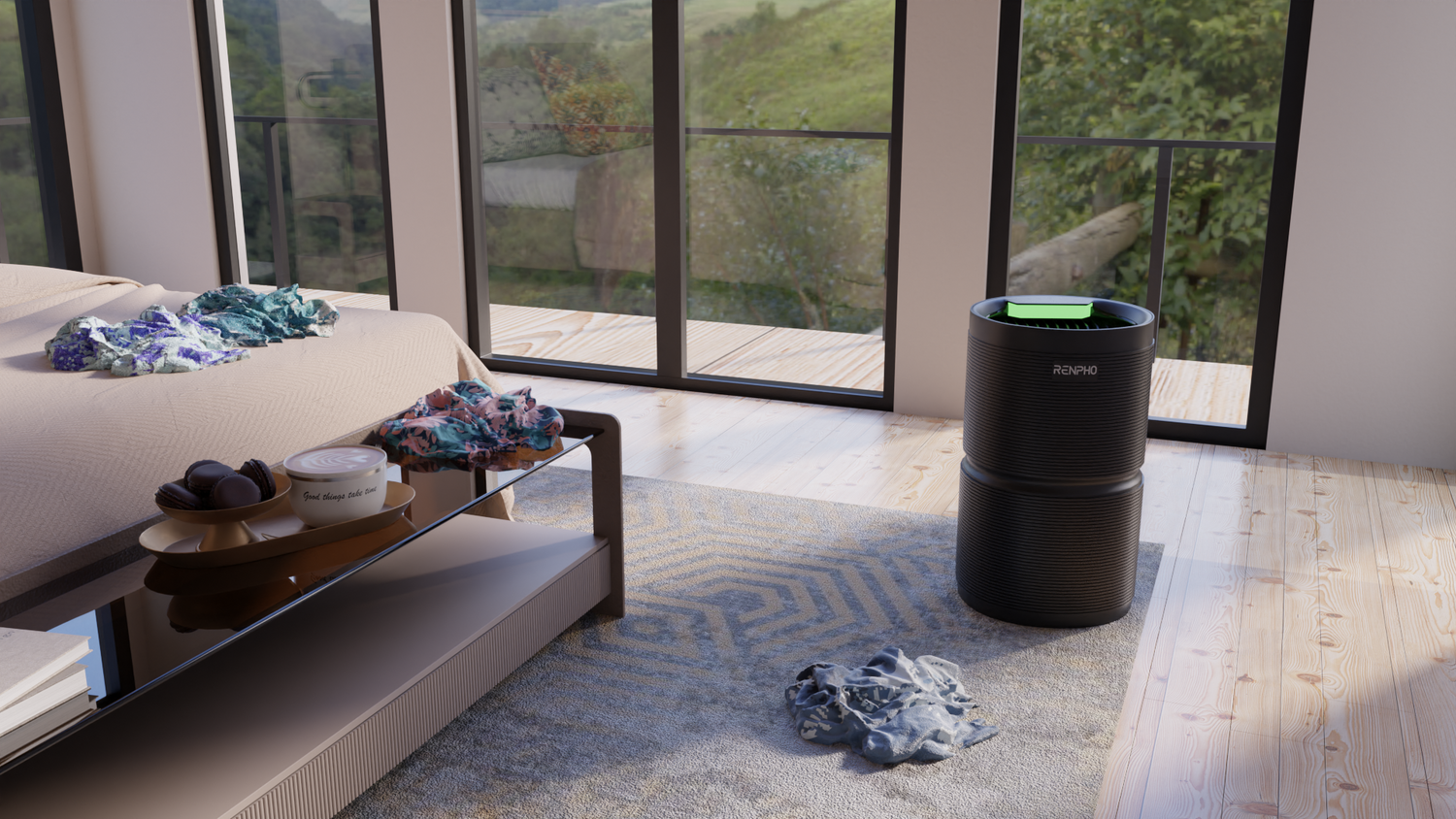
Sniffing Out Solutions: Can Air Purifiers Deal with Odors?
February 4, 2024
Read more >
-
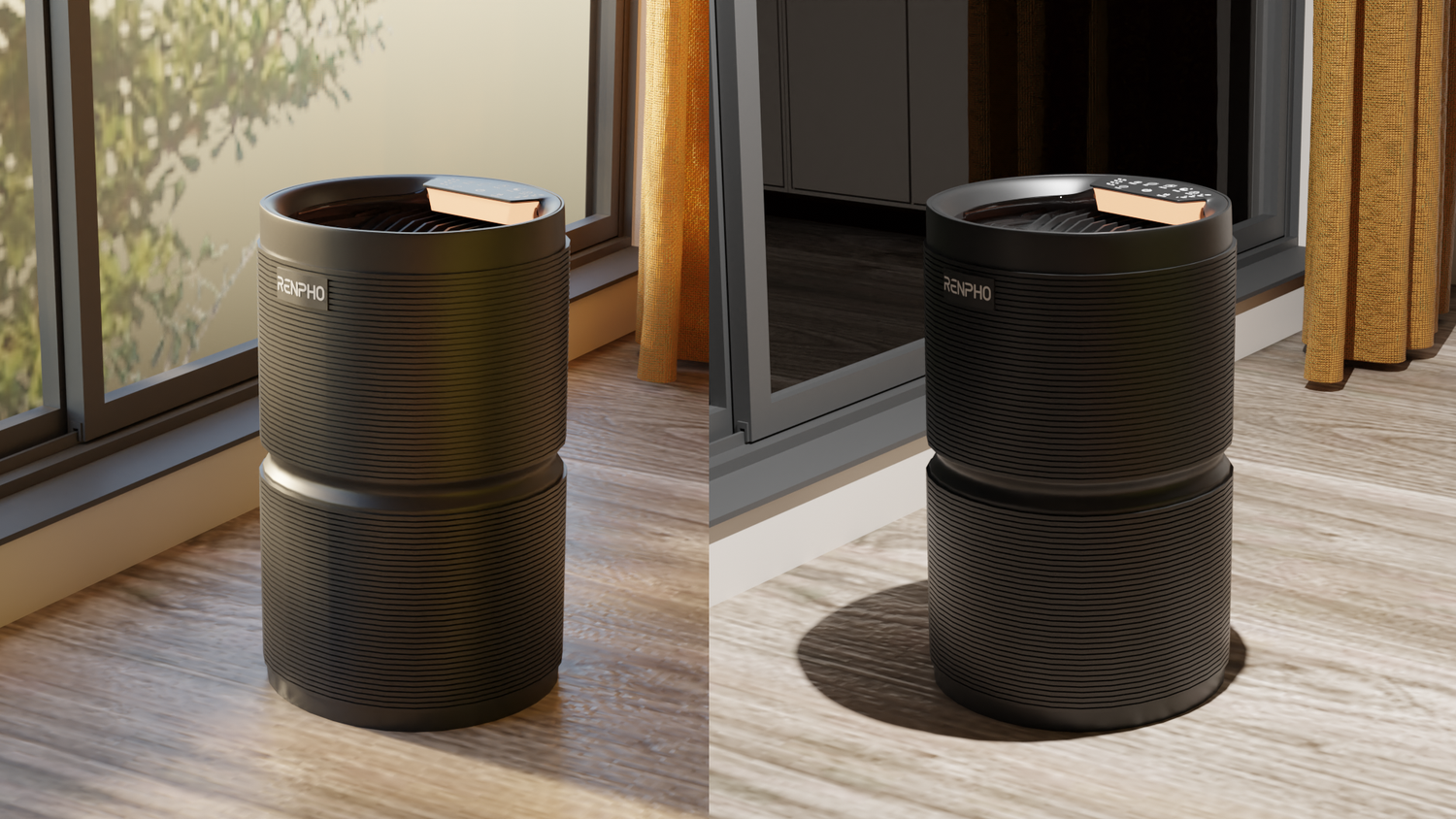
Understanding Air Purifier Usage: Can You Leave Them On 24/7?
January 30, 2024
Read more >
-
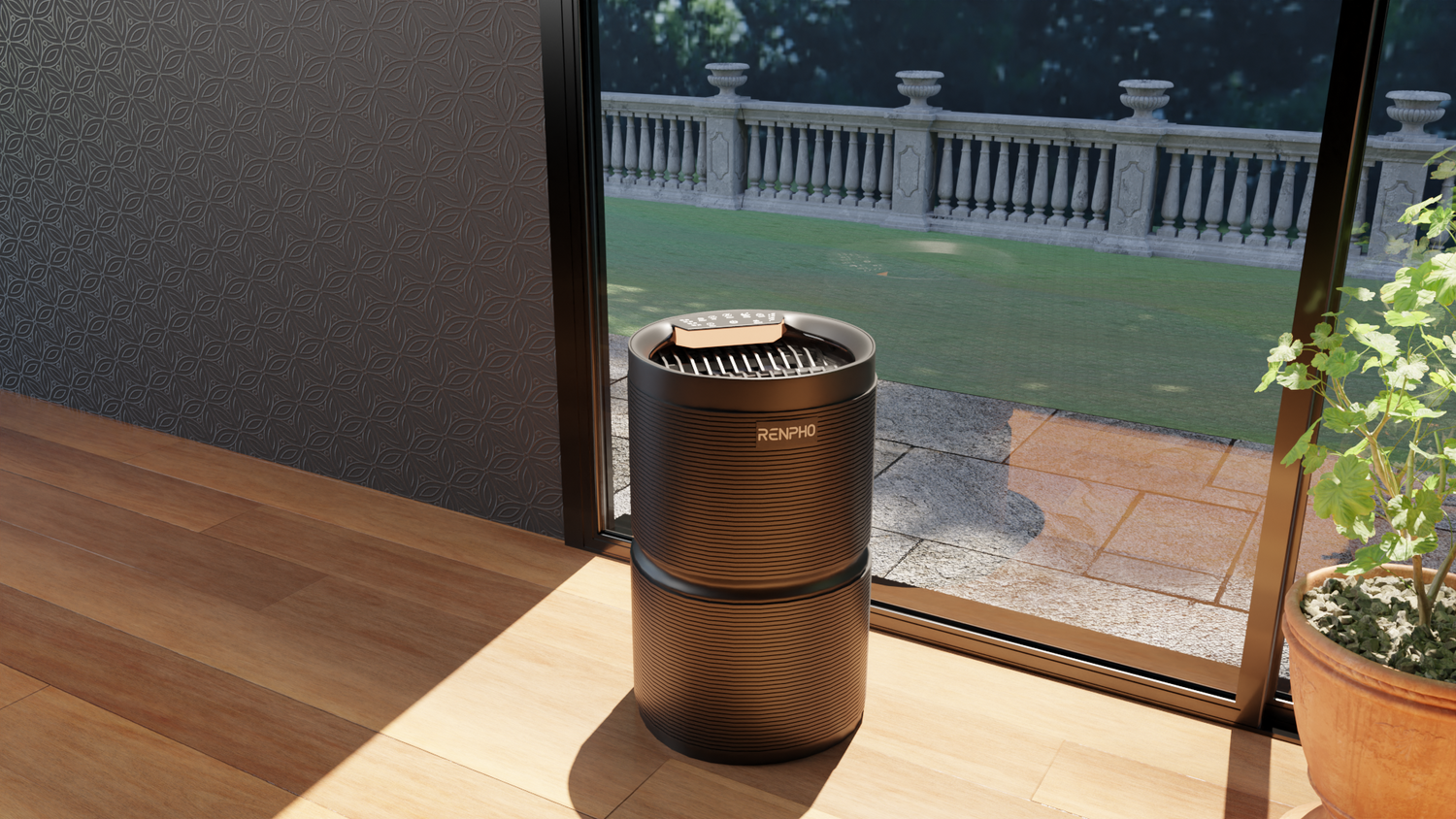
No Fresh Air? 5 Common Reasons Why Your Air Purifier Is Not Working Properly
January 19, 2024
Read more >
-
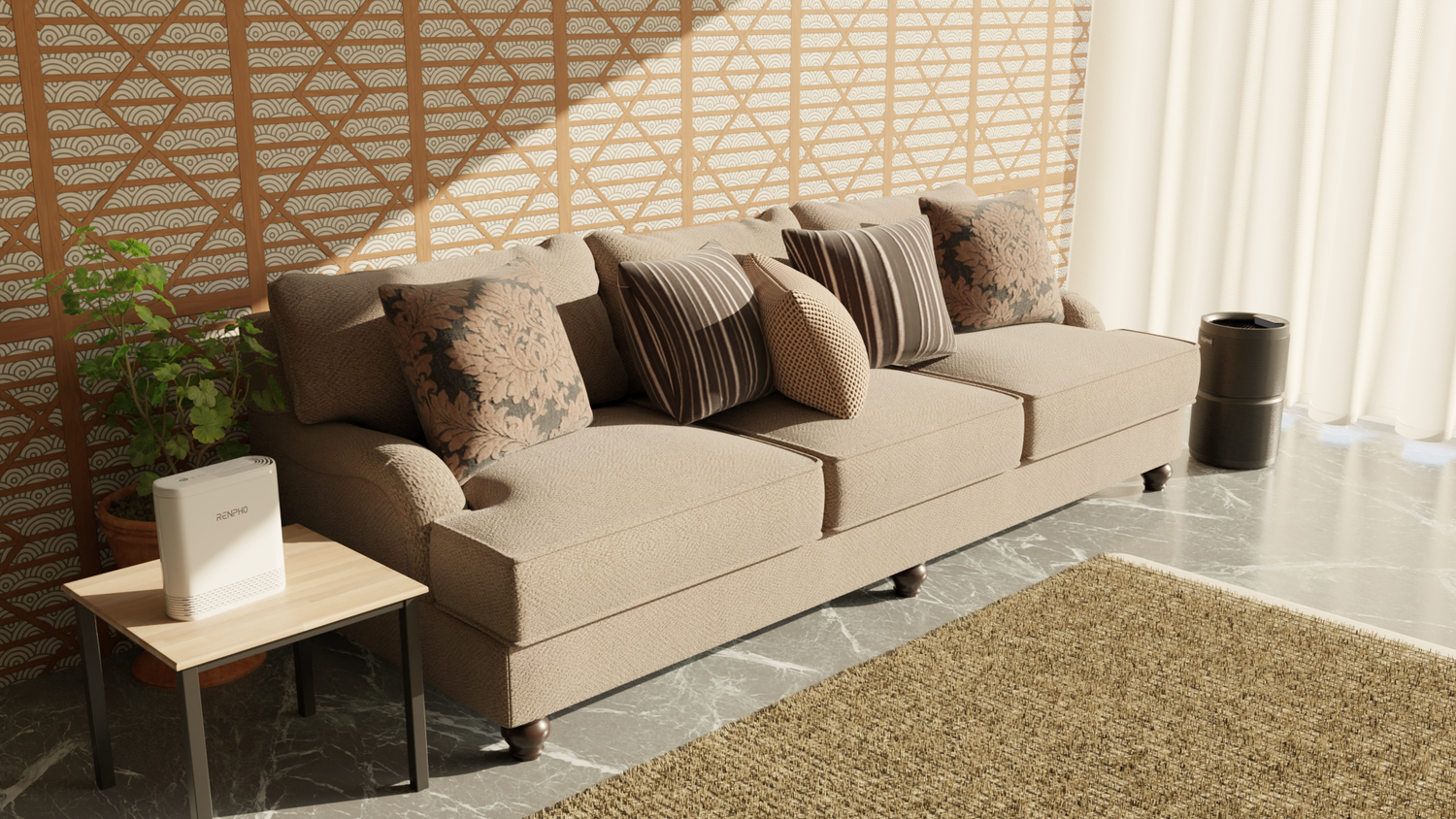
Hot or Not? Can Air Purifiers Really Cool Your Space?
January 18, 2024
Read more >
-
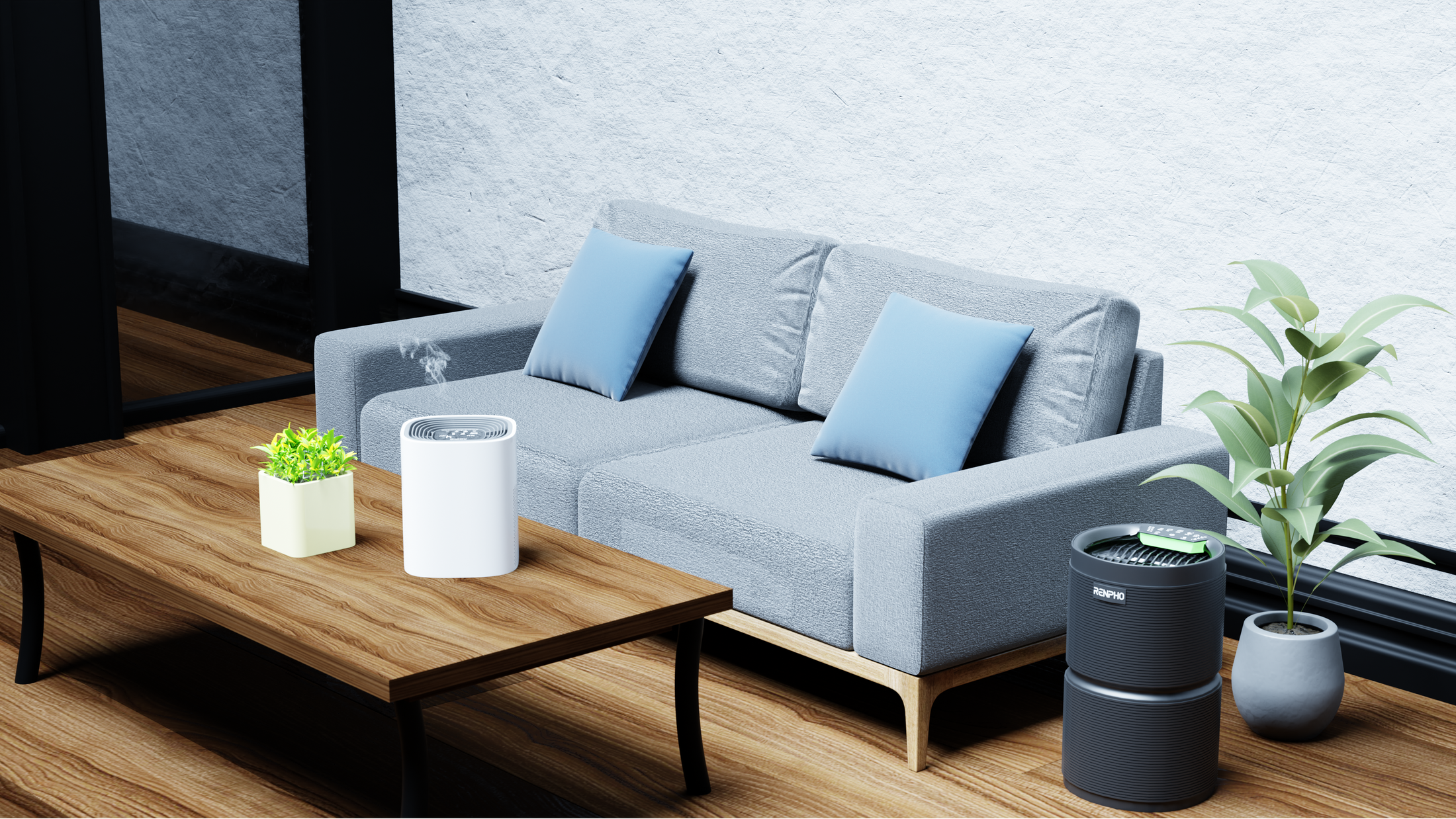
Air Purifiers vs. Humidifiers: Which One is Right for You?
January 5, 2024
Read more >




































